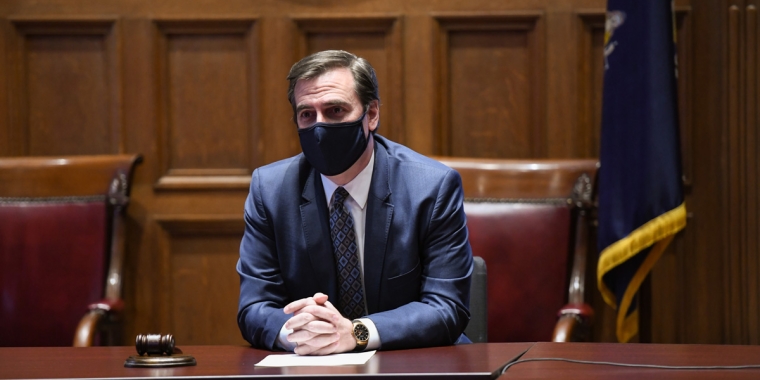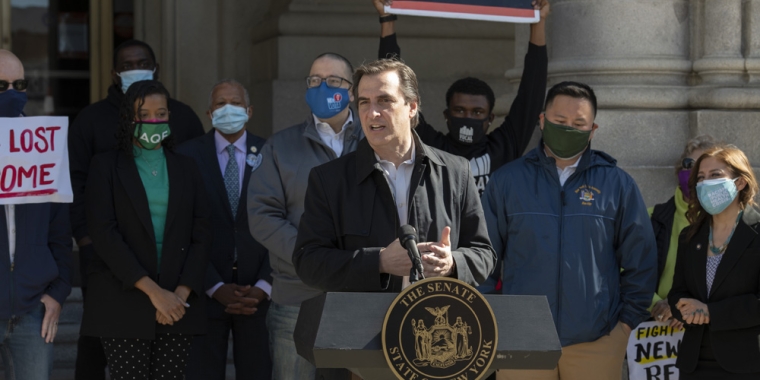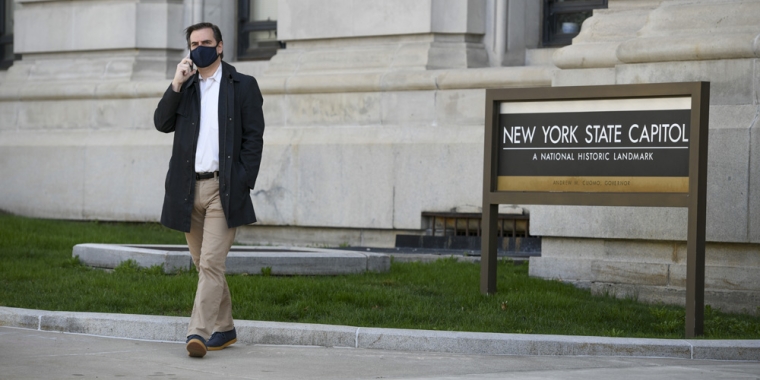
Queens Post: State Lawmakers Repeal ‘Walking While Trans’ Ban

New York state lawmakers have repealed legislation that critics say has been used by police to target transgender people in the name of curbing illegal prostitution.
Lawmakers passed a bill Tuesday that repealed section 240.37 of the penal code which is commonly referred to as the “Walking While Trans” ban.
The section was originally passed in 1976 to criminalize people who loiter in public to solicit prostitution.
However, opponents have long argued that it has been used by police to discriminatorily harass and arrest transgender individuals – particularly those of color – without cause and often based on their appearance. The governor signed the repeal legislation into law late Tuesday.
The bill was introduced by State Sen. Brad Hoylman, an openly gay man representing part of Manhattan, who said that it had been a top priority for the LGBTQ community in New York.
“This outdated, discriminatory statute has led to hundreds of unnecessary arrests of transgender women of color and a broader culture of fear and intimidation for transgender and gender-nonconforming New Yorkers,” Hoylman said in a statement.
The bill’s memo stated that Section 240.37 had led to police targeting “marginalized women in the commercial sex industry, a group at high risk for trafficking and other exploitation and abuse.”
From 2012 to 2015 for example, 85 percent of people arrested under the law were Black or Latinx, the memo stated citing city-data.
The bill was co-sponsored by Queens lawmakers Michael Gianaris and Jessica Ramos in the Senate.
Ramos called the vote “historic” and said that the WWT ban had been used by police to make discriminatory arrests.
“Repealing this law that only further adds to the mass incarceration of marginalized communities is the right thing to do,” Ramos said in a statement.
Queens lawmakers Catalina Cruz, David Weprin, Catherine Nolan and Jessica Gonzalez-Rojas were among the co-sponsors of the Assembly version of the bill.
The bill does not decriminalize prostitution. However, it does seal prior convictions made under the statute.
Gov. Cuomo said that the bill was a critical step toward reforming the state’s policing system and reducing the harassment and criminalization of transgender people.
“For too long trans people have been unfairly targeted and disproportionately policed for innocent, lawful conduct based solely on their appearance,” Cuomo said in a statement.
“New York has always led the nation on LGBTQ rights, and we will continue that fight until we achieve true equality for all.”



